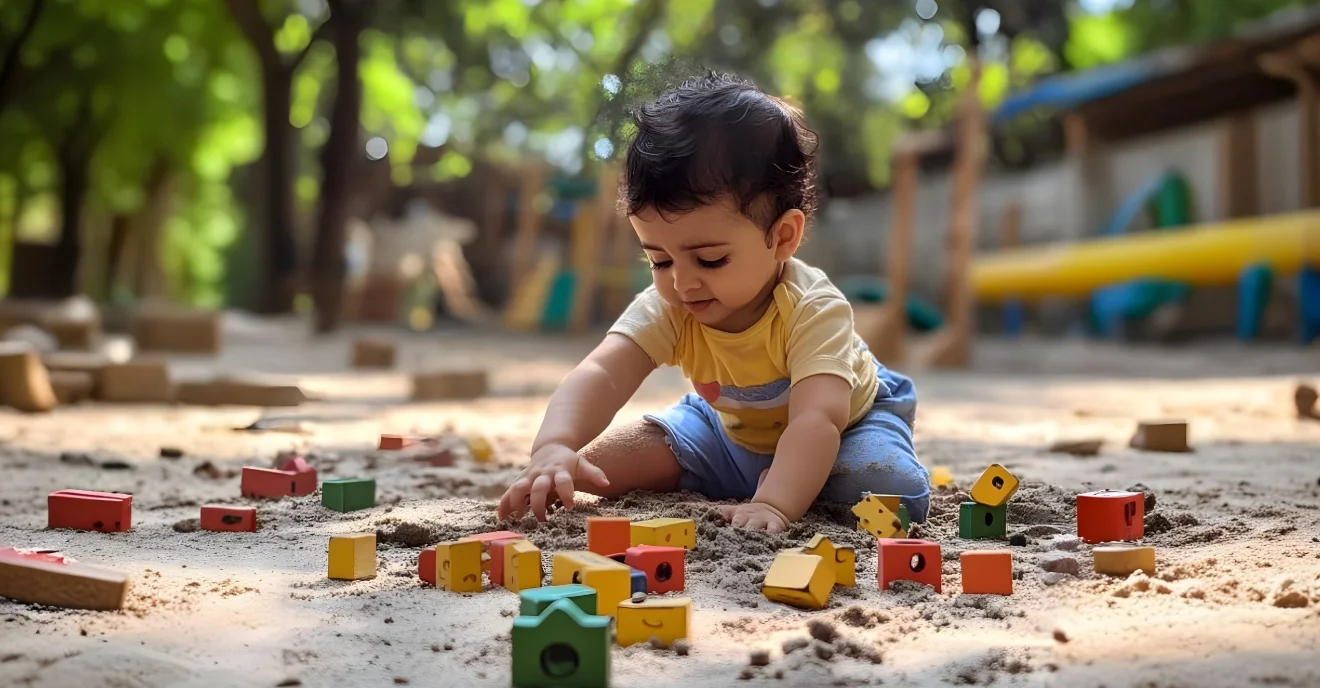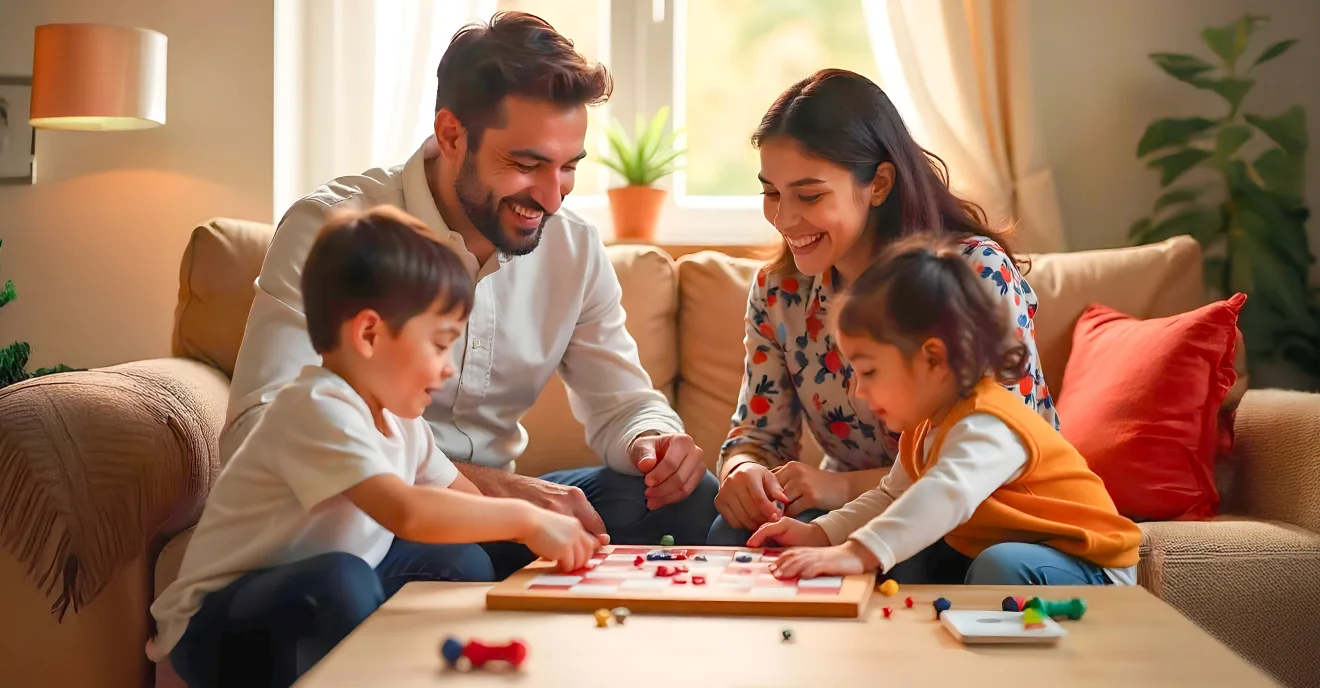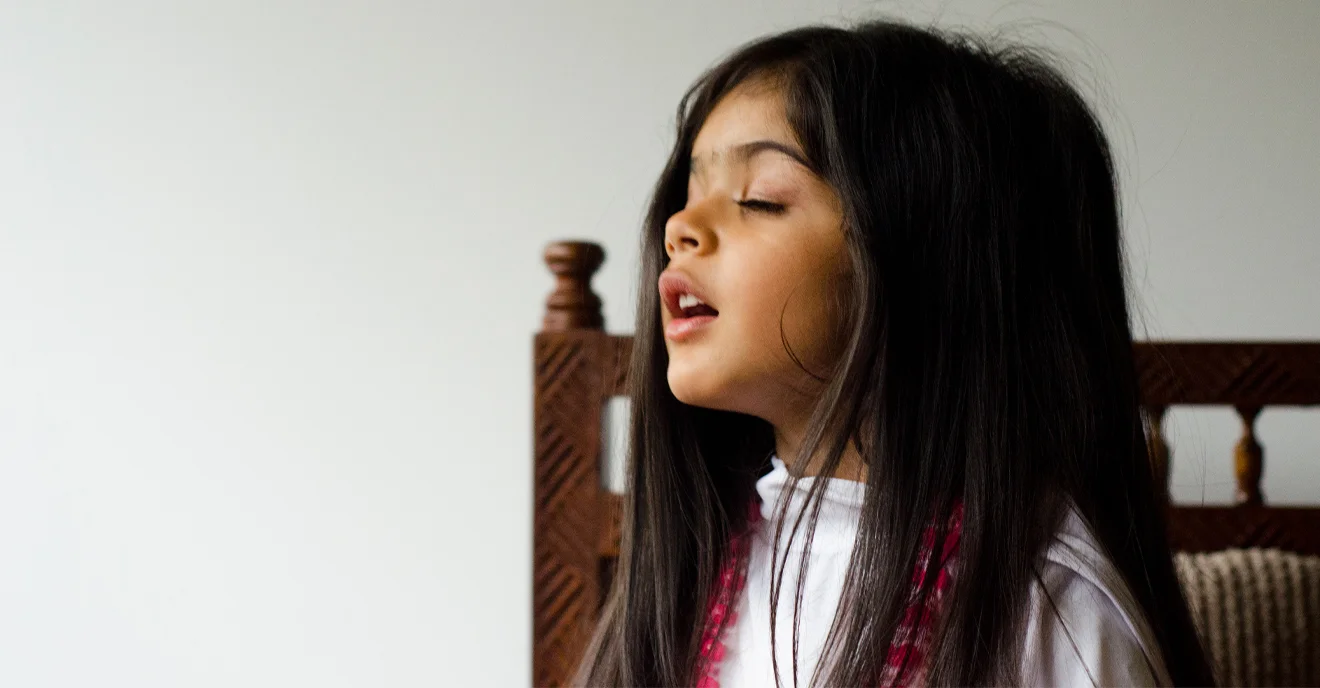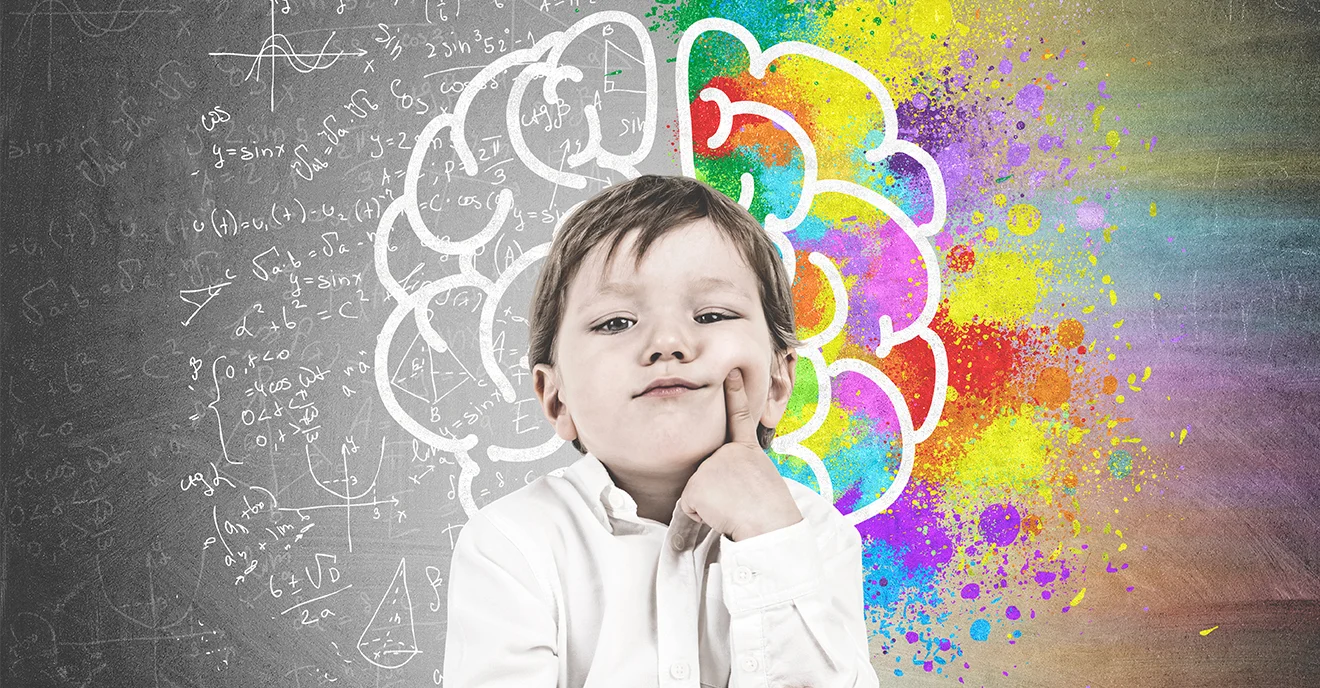At Happy Souls: The Wholesome Evolvement, we understand that play is a cornerstone of early childhood development. Beyond being a source of enjoyment, play is essential for nurturing cognitive, social, emotional, and physical skills in young children. This article explores the critical role of play in childhood growth, outlines different types of play, and highlights how we integrate these elements, including sensory play, into our programs.
How Play Enhances Development
- Cognitive Skills: Play stimulates brain development and allows children to explore and understand their environment. Activities like building with blocks, solving puzzles, and engaging in role-play boost problem-solving abilities, creativity, and critical thinking. These experiences help children grasp cause and effect, improve memory, and increase attention spans.
- Social Skills: Social play teaches children how to interact with others, developing essential skills such as sharing, cooperation, and turn-taking. Group games and cooperative activities foster communication and teamwork while helping children understand social cues and build empathy.
- Emotional Skills: Play provides a safe space for children to express and manage their emotions. Pretend play allows them to explore various scenarios and feelings, aiding in emotional processing and understanding others’ perspectives. It also offers comfort and relaxation, helping to reduce stress and anxiety.
- Physical Skills: Physical play is crucial for developing motor skills and physical health. Activities like running, climbing, and playing with balls enhance strength, coordination, and balance. Fine motor skills are also developed through activities such as drawing, building with small blocks, and playing with playdough.
- Sensory Skills: Sensory play involves activities that stimulate the senses—sight, sound, touch, taste, and smell. Sensory play helps children explore and understand their sensory experiences, improving sensory processing and integration. Activities like playing with sand, water, or textured materials support sensory development and can be calming and engaging.
Types of Play and Their Benefits
1. Imaginative Play
- Description: Involves role-playing and creating scenarios, such as pretending to be doctors or superheroes.
- Benefits: Fosters creativity, problem-solving, and social understanding. It allows children to explore different roles, enhancing empathy and world understanding.
2. Physical Play
- Description: Includes activities involving physical movement like running, jumping, or climbing.
- Benefits: Improves motor skills, coordination, and physical health. It also helps children release energy and manage stress.
3. Social Play
- Description: Involves interacting with others through group games or cooperative tasks.
- Benefits: Enhances social skills, communication, and teamwork. Teaches children to navigate social interactions and build relationships.
4. Constructive Play
- Description: Activities such as building with blocks, drawing, or crafting.
- Benefits: Develops cognitive skills, fine motor skills, and spatial awareness. Encourages creativity and problem-solving as children experiment with materials and ideas.
5. Sensory Play
- Description: Involves activities that engage the senses, such as playing with sand, water, or textured materials.
- Benefits: Supports sensory development, enhances sensory processing and integration, and can be soothing and engaging.
Play-Based Learning Activities at Happy Souls
At Happy Souls, we embrace the power of play by incorporating a variety of play-based learning activities into our programs. Our dedicated play area includes:
- Building Projects: A creative space with blocks, LEGO, and pegboards where children can build and explore. This enhances cognitive skills, fine motor skills, and creativity.
- Role-Playing: A pretend play area equipped with costumes and props allows children to act out various scenarios, supporting social and emotional development.
- Little Gym: Features climbing structures, slides, and balance beams to support physical development and coordination.
- Reading Zone: A cozy area with a variety of books where children can relax, enjoy stories, and develop language skills.
- Crafting and Drawing: Materials for drawing, painting, and crafting encourage creativity and fine motor development.
- Storytelling: Reading books together and discussing stories, along with encouraging children to create their own stories or act out scenes, enhances language skills and imagination.
- Sensory Play Area: Includes activities such as sensory bins with sand, water, and textured materials to stimulate the senses and support sensory development.
Play is fundamental to learning and growth, and at Happy Souls, we are dedicated to providing an environment where children can thrive through diverse and engaging play experiences. For more information about our programs and play-based learning activities, visit our website at Happy Souls.





